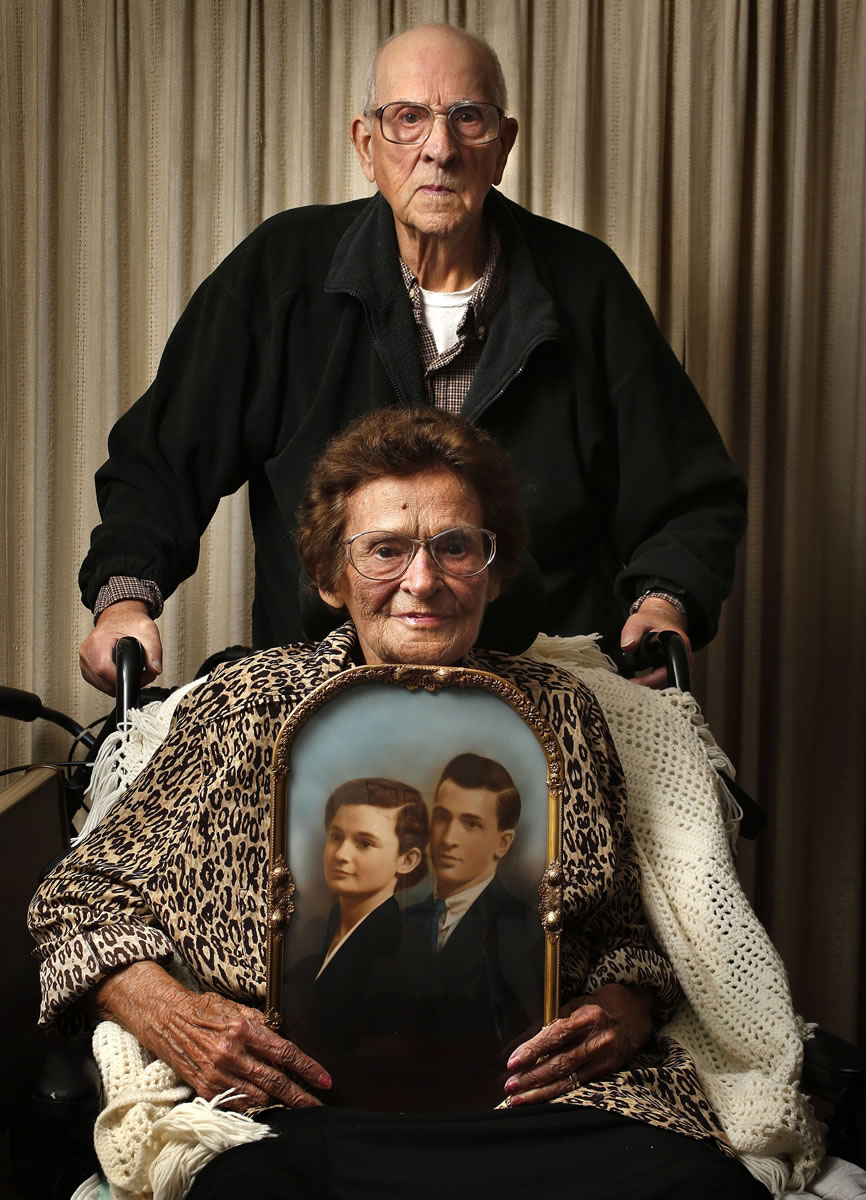SPRINGFIELD, Ore. — If memory serves — and it has to go back a long, long way — Dick and Velma Scharen met either the day before or after Valentine’s Day. Ten months later, on Christmas Day, they married. The year was 1937, in the depths of the Great Depression. He was 18, she was 15.
Now 93 and 90, the couple celebrated their 75th wedding anniversary Tuesday, snug in the Hayden Bridge neighborhood of north Springfield, surrounded by family members who provide round-the-clock support that allows the couple to stay where they’ve lived for nearly 50 years since leaving the family farm near Goshen.
They met on that farm. Dick’s people were Lane County pioneers. Coryell Pass, marked by a plaque alongside Franklin Boulevard east of Glenwood, was named for his forebears. His grandmother, it’s said, came west in the same wagon train as Eugene Skinner.
Of the 1,000-acre farm where Dick and his four brothers — Walter, Bill, Bob and Ted — grew up, Barcelona filberts took up about 70 acres and provided nursery stock for many of the area’s other filbert orchards. The rest was used for other crops and livestock, including sheep and pigs.



